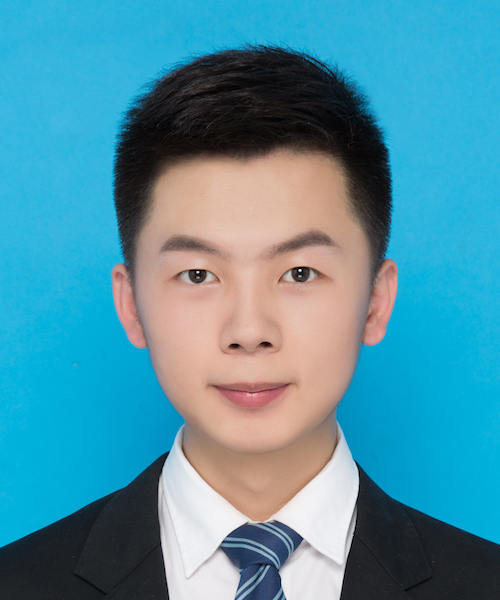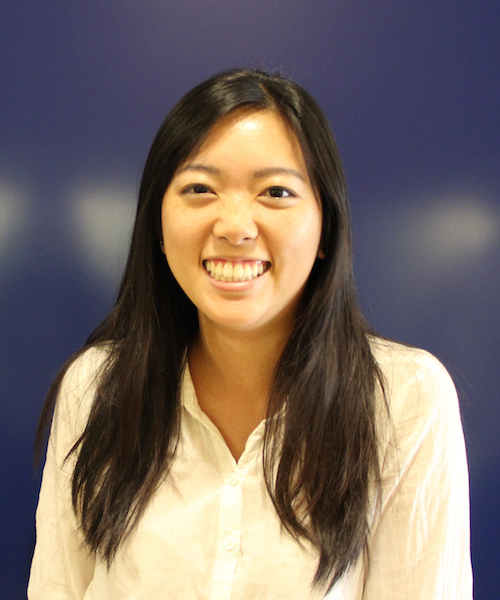
A Reflection on the U.S.-China Relationship
Ulysses McGuinness | July 31, 2018
Responding To: Reflecting on the 2017-2018 U.S.-China Student Fellows Program
Ruolin Zhao
I like to view my life journey as a colorful mosaic tinted by multi-country experiences. I believe in the merits of cultural infusion based on my personal growth, and thus I also believe in the significance of exchange on a national level to make an economically and culturally prosperous world. In the past year, the U.S.-China Student Fellows program confirmed this belief of mine--my generation will cultivate a diverse and open-minded international society with common respect, prosperity and liberty.
Our student fellows program has had a warm exchange, but sadly the reality between the United States and China has been a volatile battle. Despite the high volume of interaction between governments and among students, I still witnessed a myriad of misunderstanding in international politics and in my personal life on campus. Too often, China’s intention was interpreted as a complete dismantling of the U.S.-led alliance system, seen as a devil’s advocate for authoritarianism and human rights violations; In a U.S. Congressional hearing, a “whole-of-society response” against Chinese students was called for (see a response from Georgetown students to this situation here). Well-intentioned efforts to promote exchange, such as CSSA (Chinese Student and Scholars Association) and the Confucius Institute, were criticized with suspicion. Increasingly, cultural exchange has led to national security and ideological threat concerns. We need to conduct these exchanges with more caution, taking into account the impact they impose on the political and ideological foundation of the other country.
The road to achieving continuous and deep cultural exchange is not an easy one. More generally, to build a peaceful constructive relationship involves resolving conflicting pursuits of values, and designing a future international system that addresses power imbalance and misconduct.
Through the Fellows program, I see hope to achieve those goals. Given generous access to high-level officials and experienced scholars, I felt tremendous sincerity from both sides. Despite some hawkish views from the United States, government leaders willingly spent hours with us and tirelessly responded to very sensitive and straightforward questions. Their friendliness was unbelievable. In the conversations among us fellows, I also see how the next generation will cultivate even more effective interactions. In taxis, across dinner tables, during late night talks, I learned so much more about our visions of a better world. I felt touched by our backstories--studying abroad, actively reaching out to foreign friends, confronting blame for going against traditional values, growing up as a Chinese American or African American, living in a multicultural family, etc. Typical Chinese and American values produce conflicts as well as synergy that becomes a meaningful part of our personalities and aspirations. These conversations between us are all lively prototypes of how engagement will work out on a national level in the future.
Seeking ways to have better cross-country exchanges, I gained the following two insights during our program:
First, have conversations, not debates. In one of the talks I had with my fellows Jessie, Cynthia and Ulysses, we discussed the conduct of Chinese companies and government in Belt and Road infrastructure projects. It was not until after I vehemently and protectively argued for the conduct of the Chinese side that I realized it was not a simple win or lose debate to begin with. The real question I should be asking is, how can both the United States and China better help less developed nations grow economically? What consequences are my American friends worried about? What underlying values are driving their standpoints? How can China learn from U.S. past experience? In the context of a trade war, the same logic applies. Instead of pointing fingers at each other, both countries should focus on ways to construct a better world trade governing institution. Blaming one another for everything will not help to create a systematic and actionable solution to these difficult questions.
Second, have patience towards each other, not immediate dismissal or judgment. We have to admit that neither the United States nor China is perfect. Just as human beings can make mistakes, governments do as well. Professor Da Wei from the University of International Relations mentioned that China simply needs more time to resolve issues such as intellectual property rights; China does not stand for appropriation or plagiarism. The systems need more time to develop to an ideal state. Similarly, the United States should not be interpreted as a stubborn “bully” intervening in other countries’ politics simply because of the undesirable consequences it has caused in the past. We shall not deny or define each other by these inadequacies or mistakes.
Besides these tips for having good dialogue, it is also important to keep in mind that not every Chinese or American citizen enjoys the luxury of having deep-dive conversations in the first place. A significant amount of the population is trapped by unfamiliarity, misconceptions or language barriers before they could reach out to the other side. Madame Fu Ying once mentioned a generational difference to us--the older generations are burdened by the trauma of history, while future generations have more opportunities to engage peacefully. As a student of political economy, I hope to be the person that initiates more conversations on campus, builds a better trade system and channels business exchange in the future. I think ultimately, the lesson of this program is about responsibility—the responsibility of my generation to stand against a viciously competitive world, to cultivate trust, and paint this beautiful blueprint to a common future together.
Ruolin Zhao is a junior at Georgetown University (SFS'19) majoring in international political economy.

Ulysses McGuinness | July 31, 2018

Haile Chen | July 26, 2018

Michael Mullaney | July 25, 2018

Cynthia Wang | July 24, 2018

Jessie Dalman | July 20, 2018

Yamillet Payano | July 19, 2018

Chenyu Wu | July 18, 2018

Yunxin Wang | July 18, 2018

Hongjin Xu | July 16, 2018